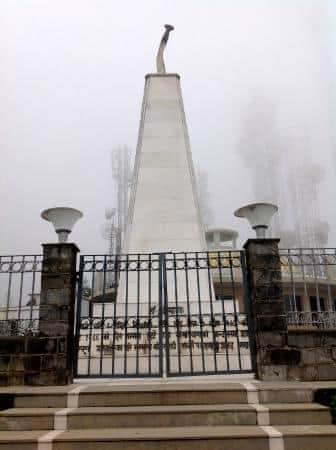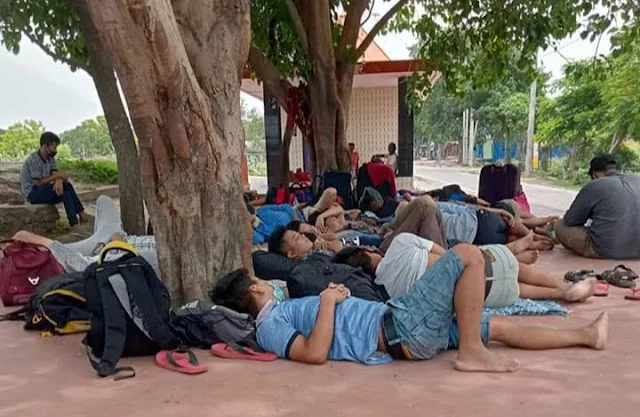“Rifleman Devi Prasad Limbu after finishing off all his ammunition, charged at the Chinese with his Khukri, severing the heads of five of them, before being killed.”
In conflict, moral ascendancy over the enemy is an imperative. During World War 2, we had seen how the Indian and British troops systemically demolished the image of the Japanese supermen before driving them out of Burma.
 |
| The Gorkhas’ Khukris |
After the demoralising defeat in the 1962 war, Indian troops were thirsting for a chance to get back at the Chinese. In the wake of the engagement with the enemy at Nathu La in Sikkim on September 11, 1967, 7/11 GR, a newly raised battalion, was moved to take over defences in the Chola area.
Here the Chinese were determined to create an ugly incident by staking claim to a territory legitimately under our control. On the morning of October 1, they got into a heated argument with Naib Subedar Gyan Bahadur Limbu, the forward platoon commander over the ownership of a boulder demarcating the boundary.
The JCO was bayoneted and wounded. In the meantime, the Chinese had taken up aggressive positions, escalating the situation. The Gorkhas’ Khukris flashed and the arms of the JCO’s assailant were chopped off.
Section commander Lance Naik Krishna Bahadur led a charge against the enemy who were forming up for an assault. Hit thrice, he was unable to use his weapon, but nevertheless urged his men on, gesticulating with his Khukri and ultimately killed by a machine-gun burst. Rifleman Devi Prasad Limbu after finishing off all his ammunition, charged at the Chinese with his Khukri, severing the heads of five of them, before being killed.
He was later awarded the Vir Chakra. Another Vir Chakra was awarded to Havildar Tinjong Lama, who used his 57mm recoilless gun to knock out a heavy machine gun with which the enemy was bringing down the withering fire.
Colonel KB Joshi, the commanding officer, exercised command well and even brought down the occasional enemy with a rifle. The same night, he personally led a company attack to recapture Point 15,450. Such was the upper hand achieved by the Kirantis’ fierce reaction to Chinese provocations that the enemy vacated the post without putting up a fight. Thus, a new battalion was blooded.
IS THE SWORD ARM GRADUALLY WEAKENING?
A recent move by the Sikh Regiment to deploy search teams to identify and motivate potential recruits does not come as a surprise to those closely following developments on the ground in Punjab. The ravages of drugs, liquor, declining standards of rural health and education have brought about great changes in the recruitment pool. A state with an abundant reservoir of young, able-bodied, qualified and motivated manpower has over time degenerated to the extent that the Punjabi youth are unable even to pass basic physical tests for entrance to the armed forces.
The people of Punjab must seriously ponder over the crisis and make the right choices in the matter of a suitable course of action to remedy the situation. No less affected will be the armed forces if they lose this very valuable pool of manpower, which has served the country very well in the past.
Citizens and leadership of the army must prevail upon politicians and bureaucrats who rule Punjab to take immediate, long-term measures to rectify the situation. Tomorrow it might be too late.
(Please write in with your narratives of war and soldiering to [email protected] or call on 093161-35343)
Source: Mandeep Singh Bajwa, Hindustan Times





